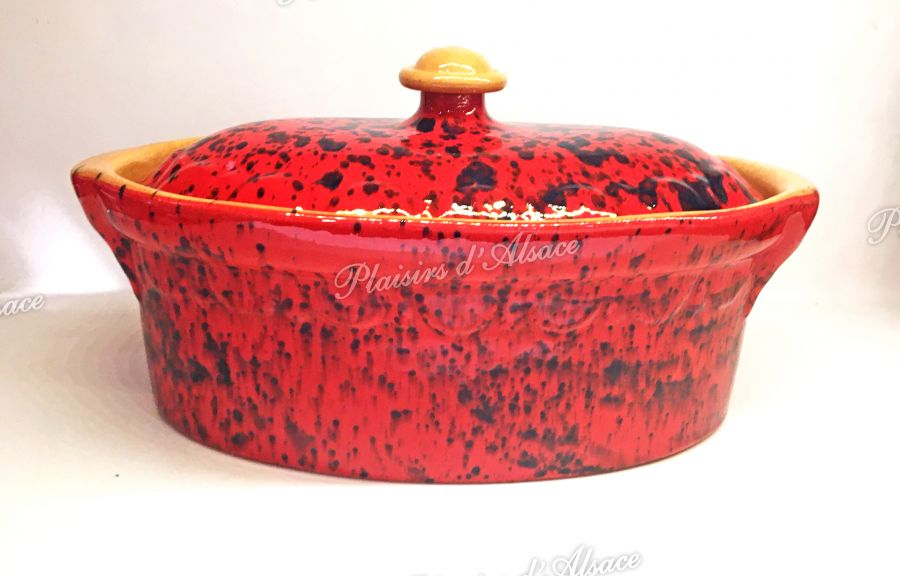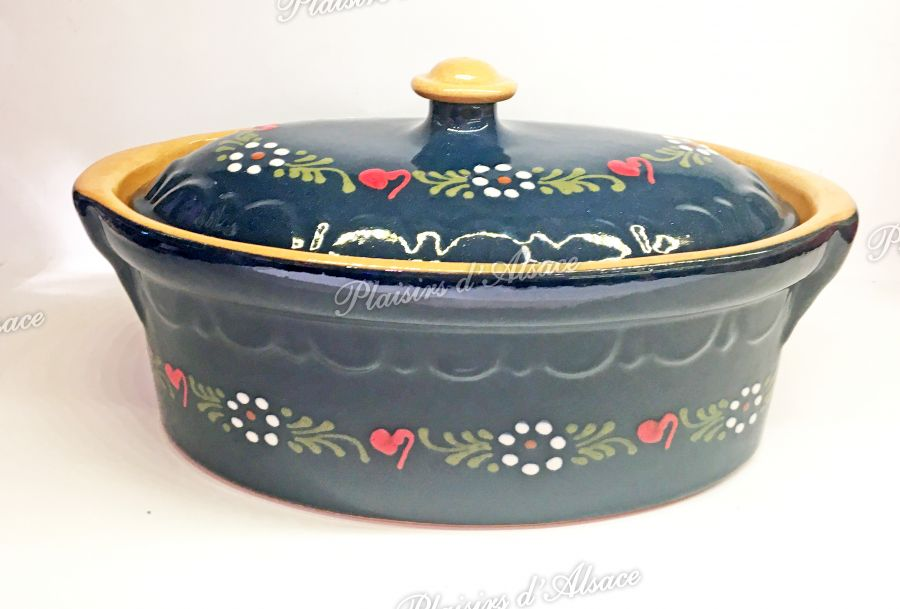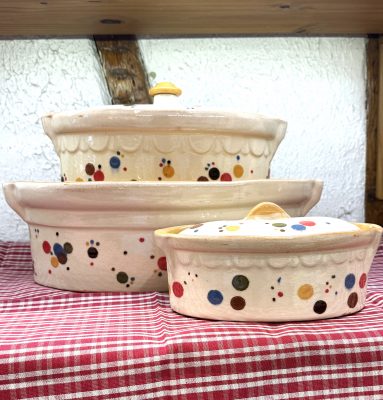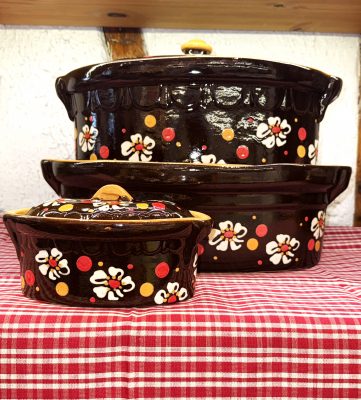Baeckeoffe terrine rouge mouchetée
Description :
In the 12th century, Emperor Barbarossa granted the potters of Soufflenheim the “perpetual right,” allowing them to extract clay from the Haguenau forest.
Manufacturing of Alsace pottery in Soufflenheim
Initially, the freshly extracted clay from underground spends some time in a mixer to soften and make it more homogeneous. This process was once much more tedious since the potter had to manually remove impurities from the soil before kneading it… sometimes even with their feet.
The second phase, called shaping, is the most impressive: the simple piece of clay will metamorphose on the potter’s wheel to reveal itself between the potter’s hands, here as a baeckeoffe terrine. The dishes and terrines, on the other hand, are molded in plaster molds. It’s at this stage that the potter proceeds with the finishing touches: handles and other details are applied using slip as glue.
The engobing operation occurs just after drying and involves applying a colored clay film that will serve as a base color before decoration entrusted to female artists. Equipped with a barrel extended by a goose feather from which the colored slip flows, they trace patterns and arabesques with dexterity that leaves one astonished!
A layer of transparent glaze, necessary for waterproofing, is then applied to the baeckeoffe terrines and other objects before firing. This final step is the ultimate factor before firing. While modern gas kilns now allow firing in 12-13 hours, in the past, it required four days!
Precautions for using baeckeoffe terrines
All baeckeoffe terrines are suitable for oven use – microwave and dishwasher. However, it is good to observe certain precautions: Avoid thermal shocks (sudden changes from hot to cold or vice versa). Do not place the baeckeoffe terrine directly on a heat source.
Recipes to use your baeckeoffe terrine
You will find recipes for Alsatian dishes and cakes, especially baeckeoffe, in the Alsatian recipe books section.



